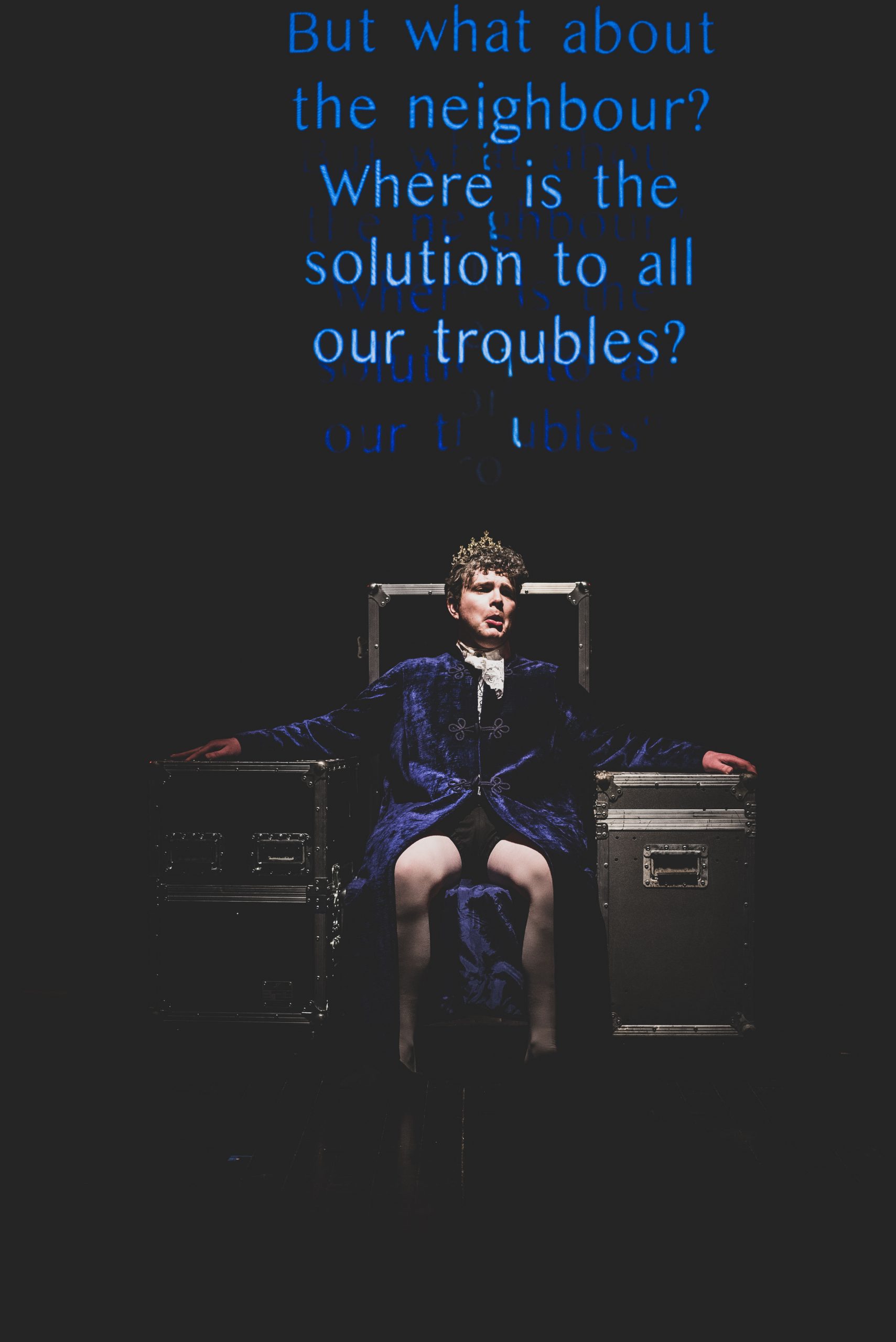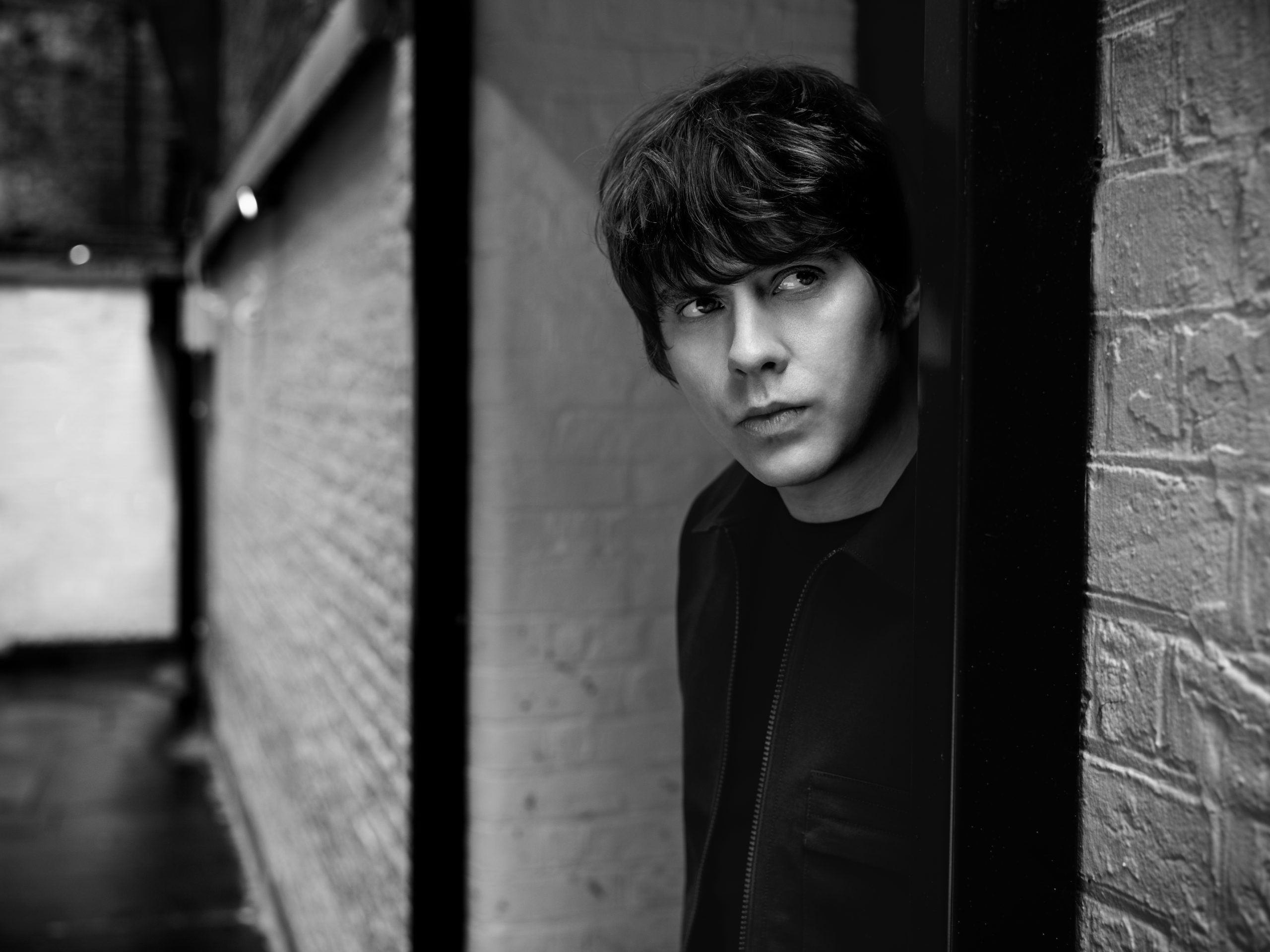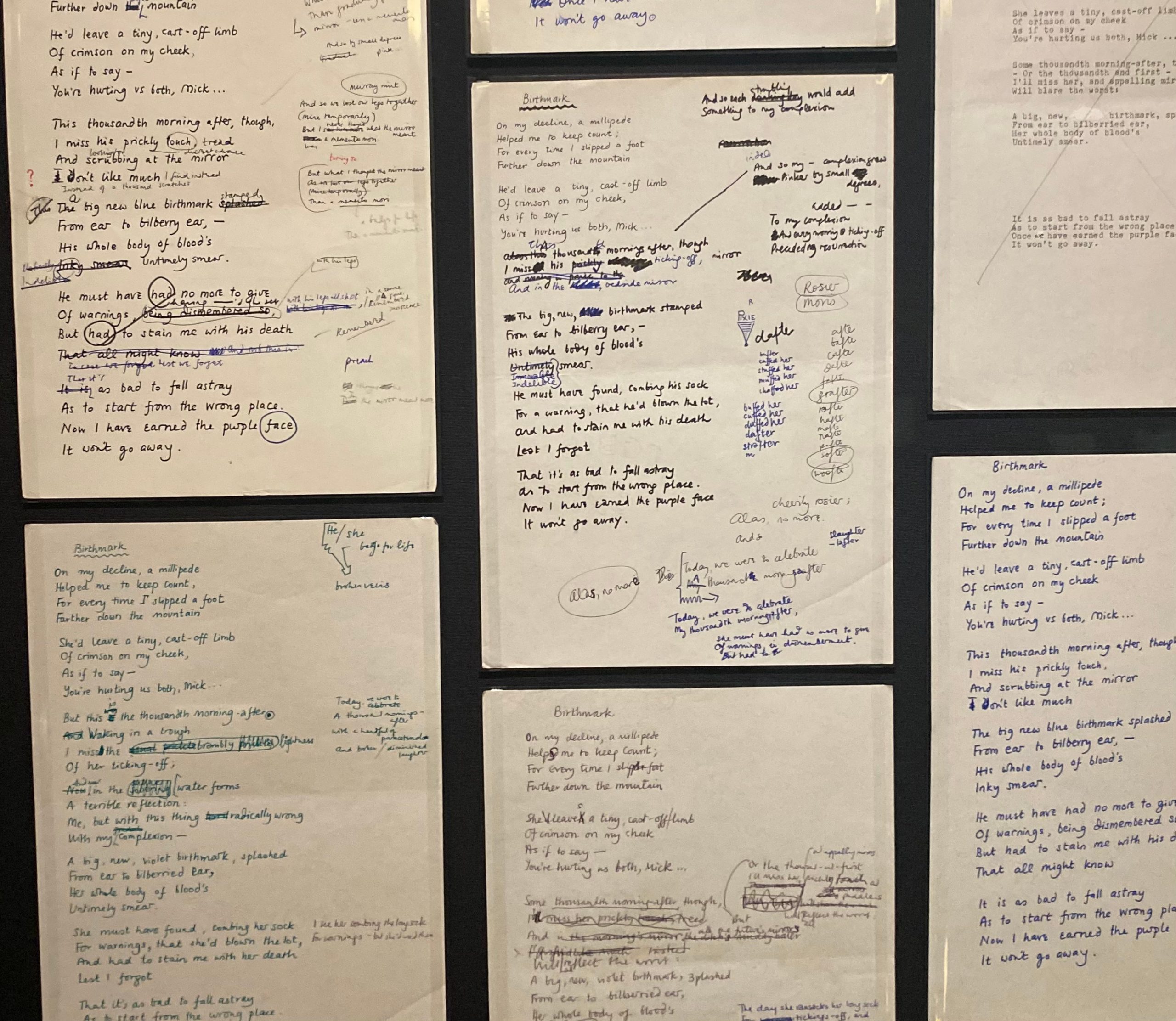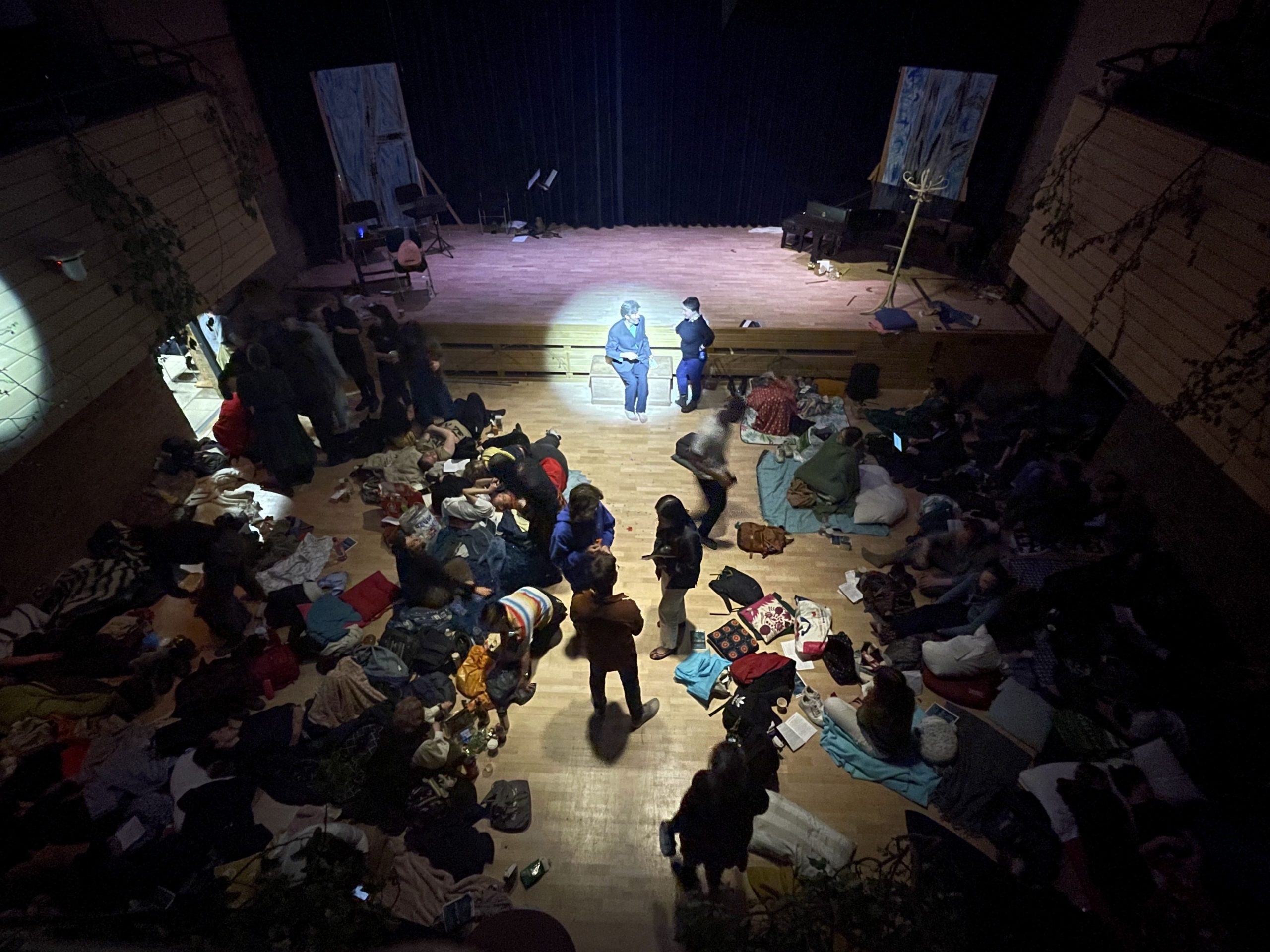
Review: Gilgamesh All Night Epic
For her sixth and final lecture as Professor of Poetry, Alice Oswald convened a nine-hour performance of The Epic of Gilgamesh, scheduled to begin at around 8 pm on Sunday 30th April and take the audience into May Day morning. My expectations for the number of attendees were reasonably low. It quickly dawned upon me that I was woefully underprepared. My Gilgamesh knowledge is limited to cursory Wikipedia research and, more importantly, while neighbours were stocked with sleeping bags, cushions and extensive supplies of sweets (a punnet of grapes was passed around at one stage), I was empty-handed.
Structured around twelve tablets, breaks in between each one provided loyal audience members with the chance to move around and pour themselves much-needed cups of coffee. It was at the outset of a recuperative pause before the fifth tablet that Tarik Beshir walked downstage and informed the audience that the performance continues during these momentary rests: “In here, our ears do the talking”. Conversations started to rumble again only for a man tucked into the crowd to bellow silence – heads jolted in his direction.
This was not the spirit of the event. In fact, Oswald used the next break to remind everyone that five minutes of so-called ‘talking time’ is meant to follow every performance. If you stage nine hours of Gilgamesh, then a forgiving approach seems the only viable option. This attitude was observable throughout; the nature of the performance was accommodating, expansive and permissive. Will Keen’s monologue about preparing to enter the cedar forest was delivered with a quiet intensity that, at times, felt closer to improvisation than rehearsed drama. Words and phrases were repeated a little randomly and spilt over each other. Having given the appearance of reading off a stack of A4, he finished by showing the audience that the pages were, in fact, blank. As one of the few tablets performed without musical accompaniment, Keen’s delivery felt particularly striking. Thembe Mvula’s poetry for Tablet 4 featured the image of our eponymous hero driving through dissolving mountains in a Cadillac. Although poignant, the verse was a touch diluted by instrumental support from the stage. Keen would not have been out of place in a Dunkirk-esque British war film, while Mvula’s collage of American iconography appeared to be plucked from Quinten Tarantino’s oeuvre – in her poem, Gilgamesh’s feet rested atop a car’s dashboard. Combining two differing styles and formats of engaging with Gilgamesh was the magic of the event. The small St Hilda’s auditorium became a space able to handle the lengthy performance precisely because of this variety. Given that Gilgamesh survives in fragmentary tablets, it would be easy to say that this mixture of dance, music, poetry and spoken word was itself fragmentary. A more considered perspective would be the opposite; the evening was remarkable for the way each piece of the story, despite being different in numerous ways, worked together.
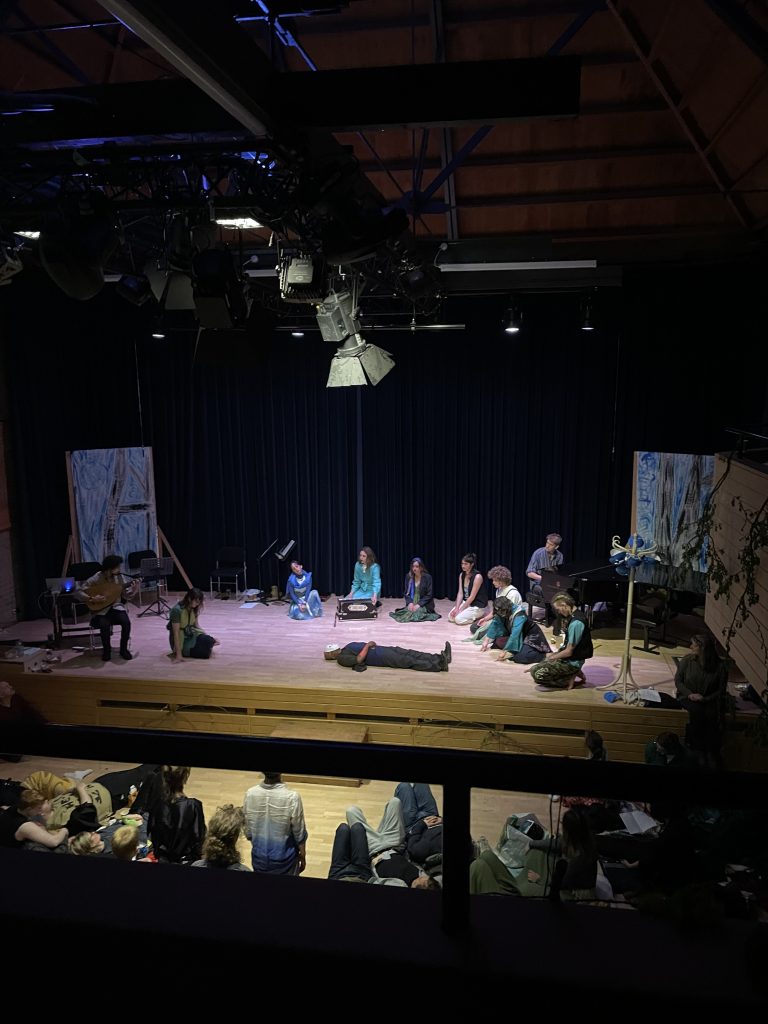
At around 2 am the snoring set in. A handful of people abandoned the ground for a fairly small balcony floor that offered the delightful luxury of a chair. Chairs quickly became beds as the faint-hearted sprawled themselves across several and took advantage of their limited padding. Some attendees lay down from the very beginning; curled up and eyes closed, for them, Gilgamesh seemed to be nothing more than an extravagant podcast. Others sat up for the entirety – whatever stamina they were in possession of, I was not. Enough to rouse even the most exhausted dozer however, was Tablet 8, the Funeral of Enkidu – Gilgamesh’s trusty companion who dies at the Gods’ behest as recompense for the pair killing Humbaba, guardian of the cedar forest. Saju Hari, playing Enkidu, was carried through the audience on the shoulders of performers from Oxford University as well as the Dartington School of Arts, and placed on the stage before the large group began wailing. This proved ample stimulation for those who had nodded off. As figures walked downstage, glanced out at the crowd and declared “We weep for you” during the lamentation proper, a grand piano played in the background and introduced a rich tonal texture, which noticeably elevated the stakes of the moment. Draped in a large sheet of foil which, when crumpling against itself, echoed the sound of rushing water, Hari’s Enkidu slowly pulled himself down the river and out of the auditorium.
The epic ended the only way an event like this feasibly can: audience participation. After quickly being taught the chorus to a song, people were gathered together and marched through St Hilda’s while joining each other in song, searching for a promised breakfast. Oswald, who was deservedly thanked at the end alongside discovered pastries, described the event perfectly when she wrote in the programme: “This is carnival and you are part of it”.
Words by Sam King.
Photography by Isaaq Tomkins.


